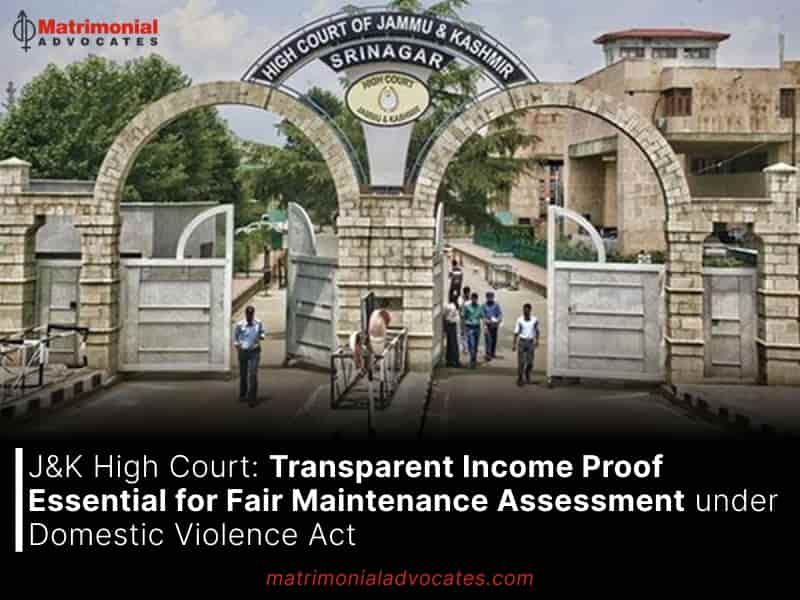
The High Court of Jammu and Kashmir and Ladakh underscores the imperative of adducing substantive evidentiary support pertinent to the husband’s income before the trial court. Such evidentiary substantiation assumes a pivotal role in facilitating the court’s determination of the precise quantum of maintenance payable by the husband pursuant to the provisions of the Domestic Violence Act. Justice Puneet Gupta accentuates the essentiality of proffering irrefutable proof regarding the husband’s income as a precondition for the adjudication of the maintenance amount.
“The court cannot pass in air the direction that the wife shall be entitled to 25% of the gross salary without knowing the actual salary of the husband. The trial court is required to have the income of the husband of the applicant-wife and then pass the order of maintenance as deemed fit in the light of the salary or other income of the husband”.
The petitioner, who is the spouse of respondent No. 01, sought the annulment of the order issued by the 1st Additional Sessions Judge in Baramulla. The trial court had directed the respondent to provide monthly interim financial support, lump sum compensation, and housing to the petitioner. The appellate court modified some of these directives, leading to the initiation of the current petition.
The petitioner argued that the appellate court overlooked the provisions of the Domestic Violence Act and deviated from established Supreme Court precedents. Specifically, challenges were raised regarding the orders pertaining to accommodation and interim compensation, with a particular focus on the adjustment made to the maintenance granted as a percentage of the husband’s salary.
In response, the respondents asserted their willingness to provide rental accommodation while disputing the rationale behind the granted compensation. They supported the appellate court’s decision to annul interim compensation, emphasizing the lack of evidence at this stage.
In a detailed examination of the case nuances, particularly the modifications to maintenance and accommodation directives, Justice Gupta emphasized the significance of presenting concrete evidence regarding the husband’s salary before determining the maintenance amount.
The bench noted,
“There is nothing on record to substantiate the salary which is being earned on monthly basis by the respondent-husband. It is only after the salary amount is made known to the court that it can pass a direction for specific amount which is payable by the respondent-husband”.
With respect to shared housing, the bench upheld the appellate court’s decision, directing the husband to either provide suitable and secure lodging or cover the expenses for housing arranged by the wife.
Regarding compensation, Justice Gupta asserted that the trial court’s award of Rs. 5.00 lakhs lacked justification and could not be maintained. The court stressed that the Domestic Violence Act is not crafted to provide windfalls but requires evidence to substantiate compensation grants.
“While the Act is undoubtedly formulated to provide swift relief to the distressed party, entitled to interim relief as deemed appropriate by the court based on the specific circumstances of the case, it does not imply an automatic entitlement for the petitioner to receive excessive benefits in the proceedings, such as maintenance or compensation, without the application of judicial discretion,” remarked Justice Gupta.
As a result, the petition was concluded in the aforementioned terms.





